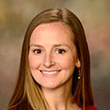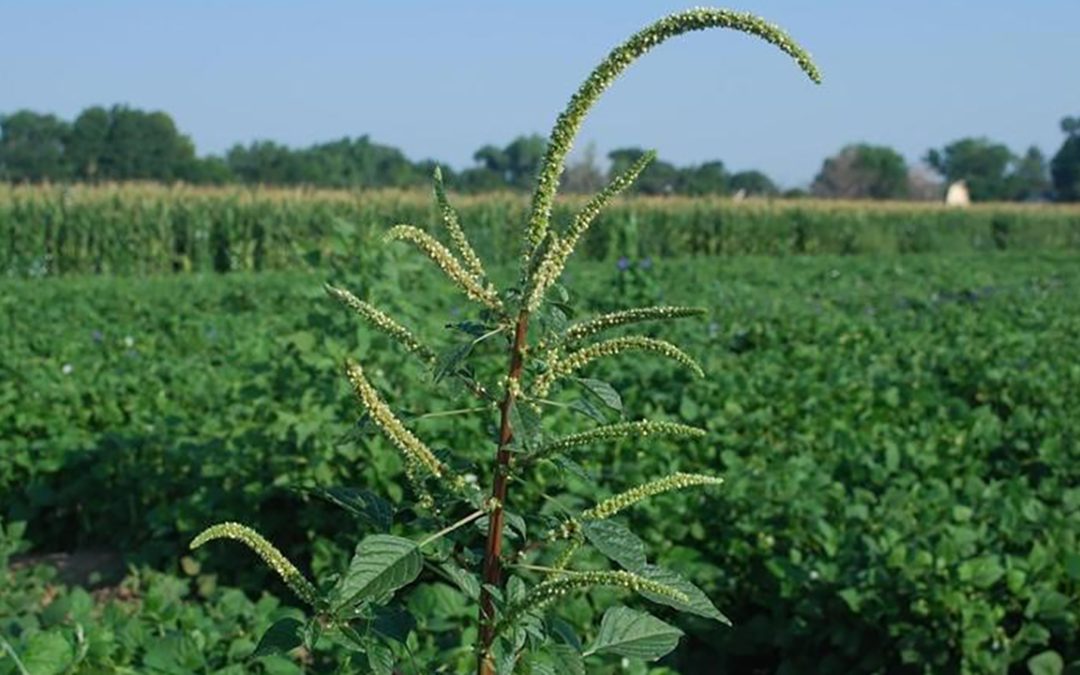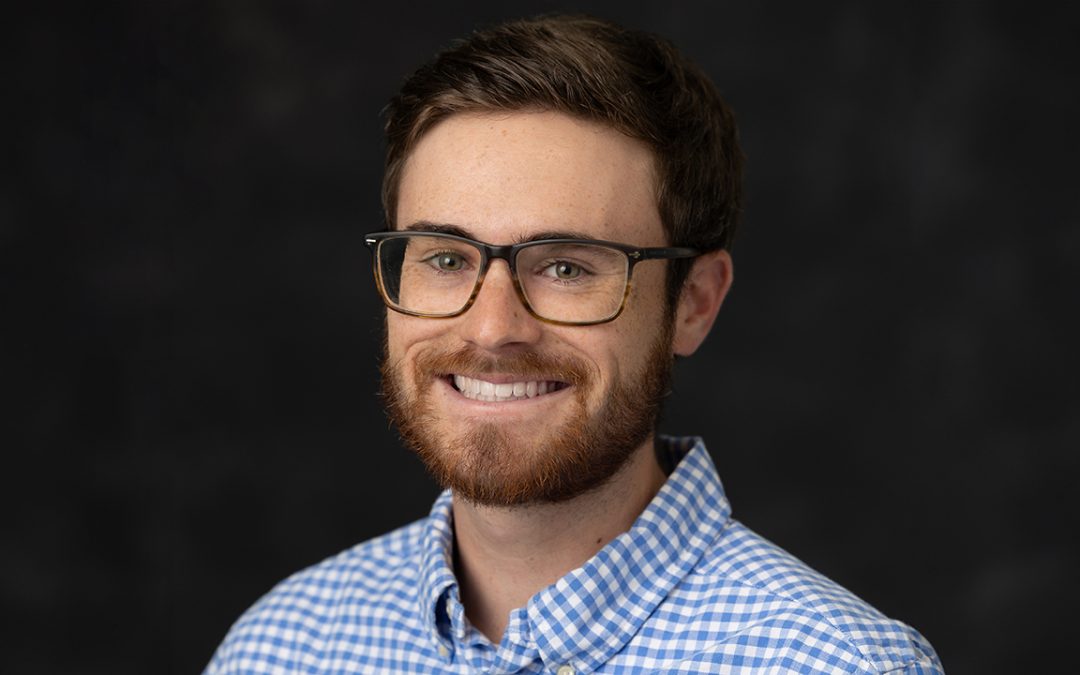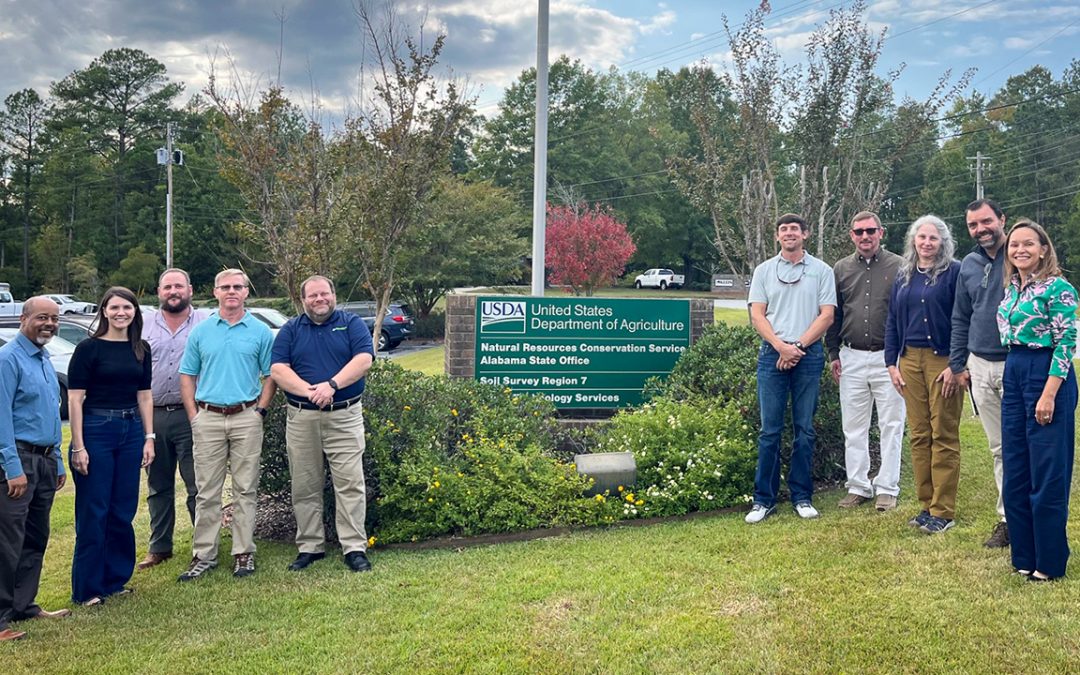Agronomy grad, professor take soil judging to the global stage
by JAMIE CREAMER
Here’s the situation Kristen Pegues finds herself in right now: She’s 5,300 miles from home, in a field somewhere northeast of Budapest, and life is the pits.
Not the pits, as in terrible; the pits, as in actual, freshly dug 5-foot-deep rectangular holes in the ground.
But she isn’t complaining. In fact, the May 2015 Auburn University agronomy and soils graduate is beyond excited in these final hours of training leading up to a Friday, Sept. 5, global showdown in which she’ll represent the College of Agriculture, Auburn and the entire United States of America as a proud member of Team USA in the 2015 International Field Course and Soil Judging Contest in Gödöllő, Hungary.
“I’m definitely nervous, but mostly very excited,” Pegues said before leaving for Hungary. “This is whole new experience. I’ll have new teammates, in a different country and different soils than any I’ve ever seen.
“Putting aside all the nerves, though, I’m excited to learn more about soils, especially ones I’ve never seen before,” she said.
That one of the Team USA’s four members is from Auburn is a big deal, but what makes it an even bigger deal is that the head coach of America’s team is Auburn’s own Joey Shaw, a Department of Crop, Soil and Environmental Sciences professor who’s been coaching and taking Auburn soil judgers to regional and national contests for going on 18 years.
“Sure, I’m a little apprehensive because it’s like nothing I’ve ever experienced, and we aren’t sure what to expect,” Shaw said last week in his Funchess Hall office. “Our team will have just four days to get to know each other and to get to know the soils of Hungary.
“But these are the four students who were the top scorers at the national contest; they’re sharp, and I feel really good about how they’ll do,” he said.
Pegues, who was on Auburn’s Soil Judging Team for three years, earned her spot on Team USA in April, when she outscored all 85 of her fellow contestants in the individual competition at the 2015 National Collegiate Soil Judging Contest at the University of Arkansas–Monticello.
Similar situation for Shaw. He took Pegues and the rest of Auburn’s 2014-15 team of soil classifiers to the first-place finish in the national contest, and that national championship was his ticket to Hungary and the opportunity to coach on the international stage.
He and Pegues flew out of Atlanta Aug. 28, rendezvoused with the three other Team USA members—who hail from West Virginia University, Kansas State University and Delaware Valley University in Doylestown, Pennsylvania—in Budapest Aug. 29 and had one day to unwind and see the sights before gathering with the soil judging teams and coaches from the 27 other countries they’ll be competing against for what was billed as an ice-breaking party.
The training and instruction phase of the international competition started Tuesday and runs through Friday and consists of short, daily classroom sessions designed to introduce the soil judgers to the Hungarian landscape and soils, followed by practical training in the field.
The actual contest will be Saturday, and it promises to be a long, mentally and physically exhausting day, with teams and coaches departing Gödöllő for the countryside where the pits are located at 7 a.m. and returning at 10 p.m., or 3 p.m. Auburn time.
 “Every place has unique soils—fundamentally, they’re all the same, but they all have different characteristics and profiles,” Shaw said. “In the competition, contestants, both individually and with their teams, have to use their knowledge and skills to correctly describe the soils in each pit, evaluate the potential functions of each soil and then interpret how the soils would perform under different land use and management practices.
“Every place has unique soils—fundamentally, they’re all the same, but they all have different characteristics and profiles,” Shaw said. “In the competition, contestants, both individually and with their teams, have to use their knowledge and skills to correctly describe the soils in each pit, evaluate the potential functions of each soil and then interpret how the soils would perform under different land use and management practices.
“These are skills these students can carry into the workplace,” he said. “Having soil scientists in society who can describe and classify soils is the foundation for most land management, from agriculture to home construction to streets and roads.”
On Saturday, once all teams have turned in their score sheets, points will be tallied and winners will be announced at the competition site. The day will end with a dinner that will not only honor the winning individuals and teams but also will commemorate the UN’s proclamation of 2015 as the International Year of Soils.
The soil Olympics in Hungary is only the second annual international contest. The inaugural soil judging competition last year was held in Jeju, Korea, during the 20th World Congress of Soil Sciences. The 2014 winner? Team USA.
“Not to put any pressure on us or anything,” Shaw said.
“But seriously, when we’ve had team teleconferences and in communicating through emails, I’ve tried to stress to the team that I want them to let themselves relax and just enjoy the whole week, because it’s definitely a once-in-a-life kind of thing and that the learning experience is the number one thing.”
Pegues agrees wholeheartedly.
“The thing I’ve always enjoyed most about soil judging is the learning,” she said. “Call me a nerd if you want, but there’s something about learning material and then applying it in the field that is truly inspiring. It amazes me to learn about the soil, something that provides so much for us.”
It isn’t surprising that Pegues feels that way. She’s the daughter of Malcomb Pegues, director of the Gulf Coast Research and Extension Center in Fairhope, and lived the first 18 years of her life there.
“Growing up on the station, I was always surrounded by agriculture, and as I finished high school, I realized that my passion was agriculture, said Pegues, now in her first semester of graduate school at the University of Georgia. “I have never regretted that.”





